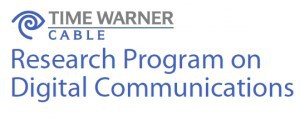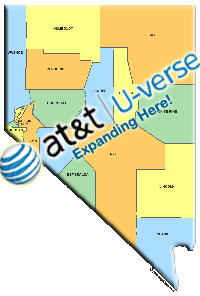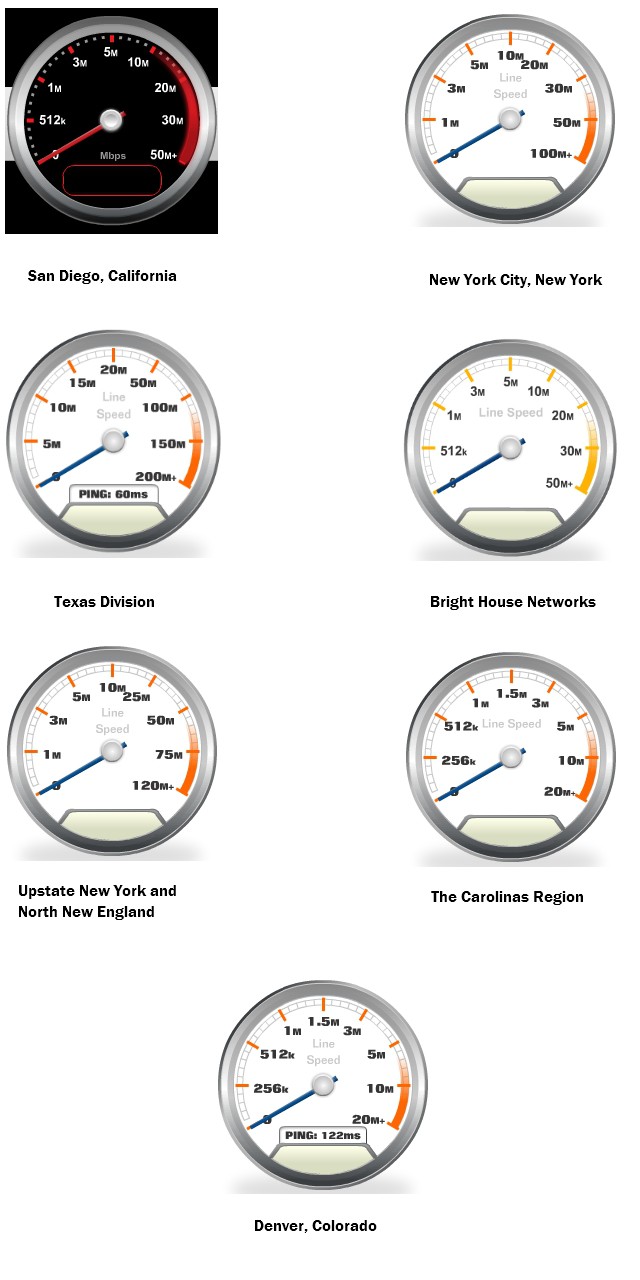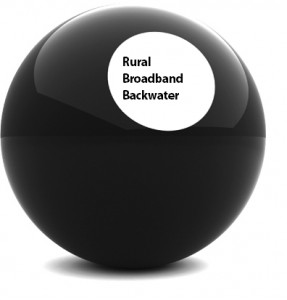
Phillip "My Essay Would Never Get Accepted" Dampier
Wonder where Time Warner Cable is spending this year’s rate increase? Look no further than Time Warner Cable’s all-new Research Program on Digital Communications.
For a 25-35 page essay on the topics that interest Time Warner Cable’s lobbying and Re-education campaigns, the cable operator will fork over a whopping $20,000 “stipend.”
Why? They get to use an ostensibly “independent” researcher from a major university or non-profit group to promote their agenda with the veneer of credibility. It’s not Time Warner Cable that suggests Internet Overcharging schemes are warranted — it’s this researcher guy from a respected university who said so. Net Neutrality should be opposed not because we have a vested interest in doing so, but because this non-profit group catering to a minority or disadvantaged group says it will harm their members.
Copies of the “dollar-a-holler” essays get spread around Washington to influence public policymakers and other legislative movers and shakers, and inevitably become talking points in the public policy debate. Long forgotten is who paid for them.
What kinds of questions does Time Warner Cable want answers to?
- How are broadband operators coping with the explosive growth in Internet traffic? Will proposed limits on network management practices impede innovation and threaten to undermine consumers’ enjoyment of the Internet?
- How can policymakers harmonize the objectives of preventing anticompetitive tactics and preserving flexibility to engage in beneficial forms of network management?
- Regarding these issues, describe a vision for the architecture of cable broadband networks that promotes and advances innovation for the future of digital communications.
- How might Internet regulations have an impact on underserved or disadvantaged populations?
See below for my exclusive tips and strategies to help would-be applicants succeed in getting their essay proposals approved!
Some companies have paid stipends to researchers to consider market trends, new product possibilities, and be on top of the next biggest thing. This isn’t that.
This “research program” is being overseen by Fernando R. Laguarda, Vice President, External Affairs and Policy Counselor at Time Warner Cable. Laguarda joined Time Warner Cable last April from Wiltshire & Grannis LLP, a boutique law firm involved in telecommunications policy strategies as part of its practice. The firm describes, among its strengths, a “first-rate understanding of the law and policy with a keen understanding of the political and public relations forces that shape public policy battles to help fashion innovative, winning strategies.”
Time Warner Cable admits he’s there to help Time Warner re-educate lawmakers and the public about Time Warner Cable’s agenda. From their press release announcing his hiring (underlined emphasis ours):
Laguarda will play a significant role in helping the company develop and advance its policy positions, and will assume primary responsibility for working with third party policy influencers, including think tanks, academics, public interest and inter-governmental groups, and diversity organizations.
“Fernando is an accomplished attorney who comes to Time Warner Cable with a unique mix of experiences and he will bring a fresh perspective to the many policy issues we will be addressing,” said Steven Teplitz, Senior Vice President, Government Relations, adding “he knows our business extremely well and will play an essential role in helping to advance Time Warner Cable’s advocacy agenda.”
 Time Warner Cable is taking a page from Verizon and AT&T, who back research “think tanks” and have contributed heavily to organizations that suddenly declare a burning interest in their corporate policy agendas. Take a look at Broadband for America’s member roster for a review of how that game is played.
Time Warner Cable is taking a page from Verizon and AT&T, who back research “think tanks” and have contributed heavily to organizations that suddenly declare a burning interest in their corporate policy agendas. Take a look at Broadband for America’s member roster for a review of how that game is played.
Time Warner Cable customers are probably wondering why they are paying for this. After all, $800 a page for essays that “will provide new information, insights, and practical advice” is mighty pricey.
Ordinary consumers are not invited to apply. Had we, my essay proposal would have been, “Time Warner Cable Should Stop Wasting Customers’ Money on Bought-And-Paid-For Essays and Instead Use the Money to Upgrade Their Network.” I was even planning on including some nice graphs and charts and stuff.
I would remind the nation’s second largest cable operator it earns billions from selling broadband. Instead of blowing $20k-an-essay down a Washington public policy rathole, it could instead spend it on solving their burning network management issues with simple, cost-effective upgrades that deliver better service to customers.
Since I don’t qualify — I’m just a Time Warner Cable customer, what do I know, I’ll be a giver and not a taker and share free advice with would-be applicants.
1. Since Time Warner Cable doesn’t want a breakdown of your expenses or need to know what you are going to do with the $20k, you are going to spend most of your time and effort first learning what policy positions the cable company wants you to parrot in order to improve your chances of being a big winner. Remember, Time Warner isn’t going to give you the whole 20k upfront. According to their FAQ, one half of the award ($10,000) will be issued at the start of the project. The second installment ($10,000) will be made only after your advocacy essay is delivered. There’s a built-in incentive to tow the line.
2. You can’t write on just any topic. You have to write about one of the company’s pre-selected topics, which is why I’m out of the running for this already. If you’ve been paying attention to the policy debates about Internet Overcharging, Net Neutrality, and Network Management, you are already half-way there! You know what side of the issue the cable company is on, so don’t blow your chances by saying things like “a free and open Internet should never discriminate against the traffic carried on it,” or “at a time when the broadband industry earns billions in revenue and recently increased rates for customers again, the idea of implementing usage limits or usage based billing would make Tony Soprano awe at its audaciousness.”

Polly wants a stipend
(Statements in green keep you in the running. Statements in red will likely get your proposal introduced to the circular file.)
- Reputable equipment manufacturers predict Internet growth so great, it threatens a vast “exaflood” which could bring the Internet to its knees. Without wise network management and traffic control measures, just like those used on any big roadway, a cataclysmic global traffic jam is inevitable.
- Network Neutrality should be a given for any provider because no company wants to make money by slowing down someone’s content. That would be like extortion — pay us or we put the brakes on you.
- Network management techniques guarantee your call from grandma will be crystal-clear, your movie download from your cable-partnered movie service will always play worry-free, and by organizing online traffic, Internet chaos is reduced.
- There is nothing wrong with cable companies colluding with one another to preserve the industry’s flexibility to manage its own traffic, even if it means putting some questionable, independently-owned traffic at the back of the line. Nobody wanted to view that anyway.
- Today’s cable broadband provider is investing billions of dollars to improve network capacity and deliver customers an unparalleled online experience. The cable industry has pioneered innovation in cable network programming they own, operate and distribute to assure quality and excellence. Now, by taking that same formula for success to online content, and cutting out unnecessary middlemen, the industry can do for broadband what it created for cable television. Now that’s a win-win for everyone!
- Internet regulations have unintended consequences. It means providers have to funnel large contributions to interest groups, or place a company employee on a group’s advisory board, so that the industry can rest assured that groups with an interest in maintaining valued contributions will advocate anything we ask, starting with “these regulations are bad for our groups and our members.”
- Unnecessary Internet regulations will create widespread depression and anxiety for investors. That means money to expand broadband availability in underserved or unserved communities will dry up faster than the Mojave Desert.
- If the cable industry doesn’t get its way on this, it will punish consumers like the credit card industry did after “credit card reform.” Word to the wise.


 Subscribe
Subscribe








